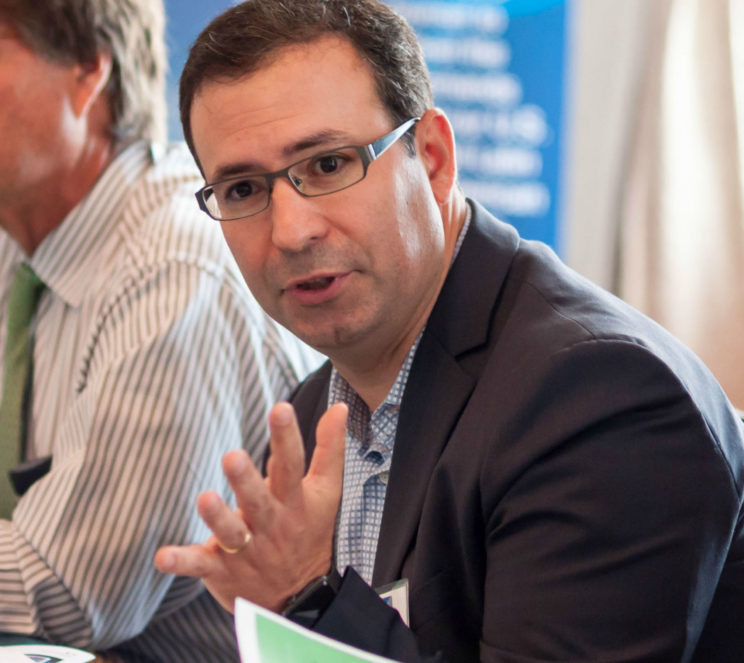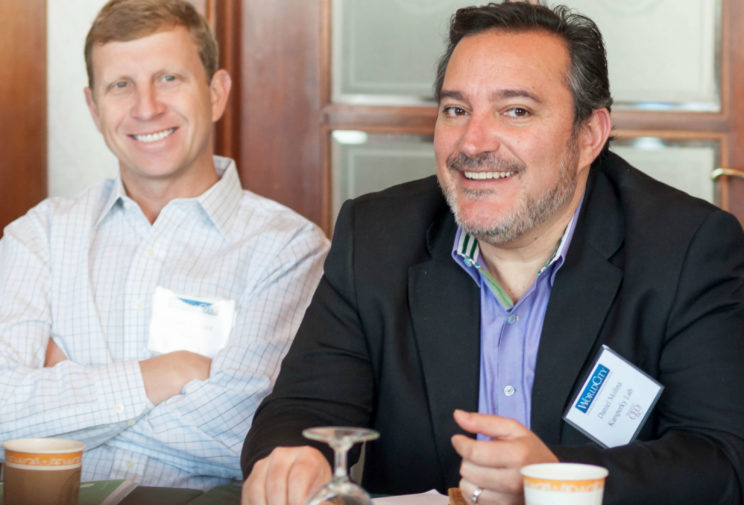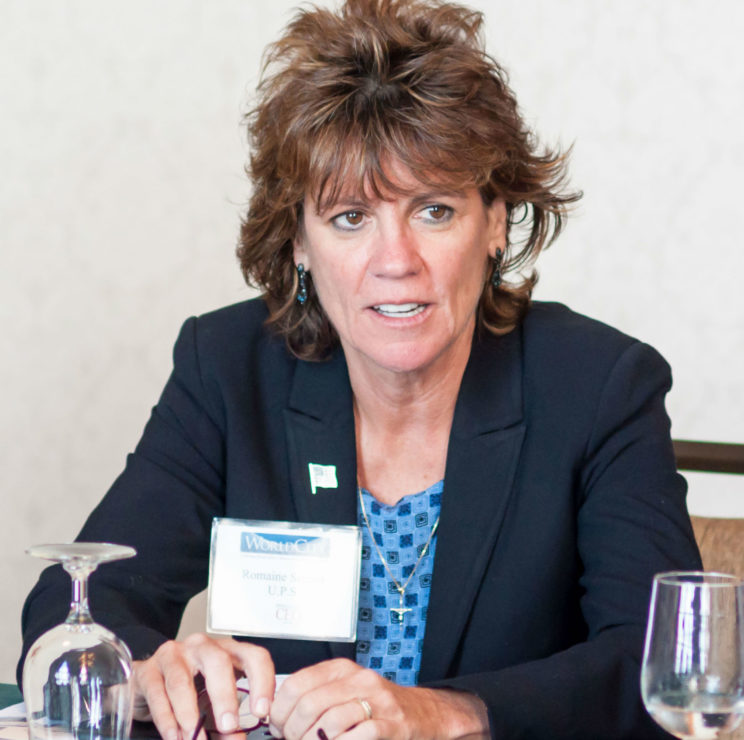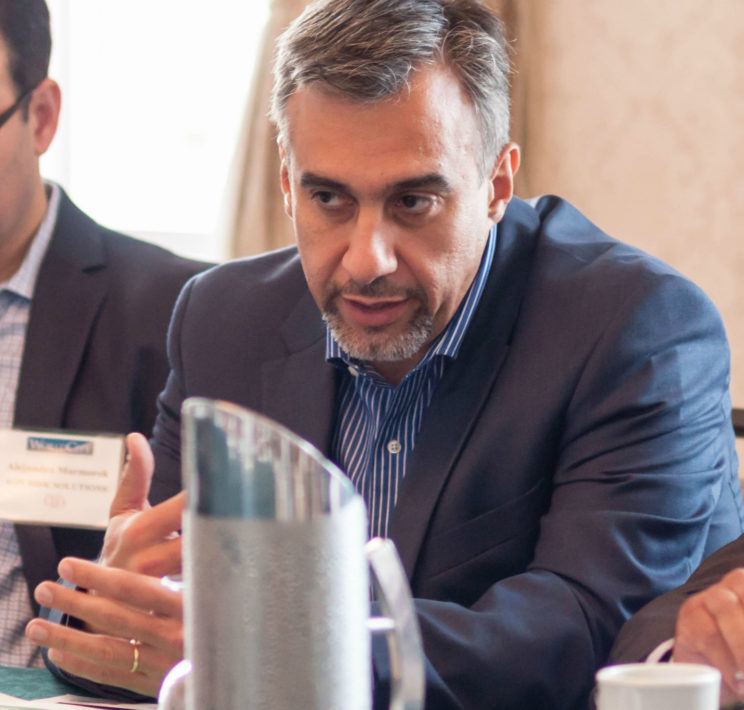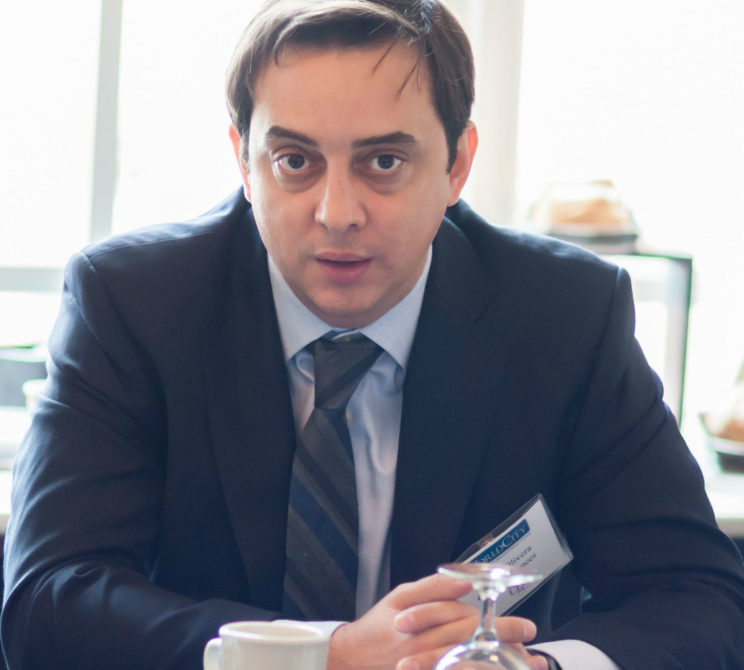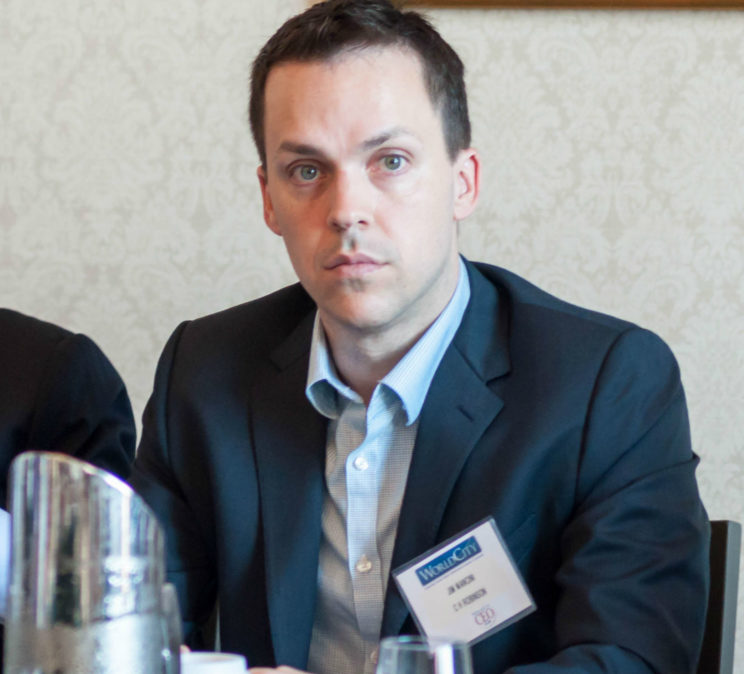Risk in the Modern World: from snap judgments to competition
“What keeps you up at night?” Ken Roberts, WorldCity CEO asked a group of top multinational executives and company directors in advance of a round table discussion lead by Alejandro Marmorek, chief commercial officer at Aon Risk Solutions, Latin America Division.
That question hit home with participants at the WorldCity CEO Club event, “Identifying Risk and Uncertainty within Different Industries in Latin America,” held May 6 at the Coral Gables Regency Hyatt. Answers ranged from concern about sudden disruption from new technology (think Uber), and economic upheavals, to rapid political reverses, competition, and problems finding the right talent.
“All of the above,” wryly remarked Antonio Bejarano, general manager and country manager of Banco Internacional de Costa Rica S.A., who also heads the Miami Agency.
Those concerns and more worry executives around the world, said Marmorek, who shared Aon’s Top Ten Risks survey of 2015, which asked 1,400 respondents, from small firms to Fortune 500 giants, to rate events, trends or occurrences of most concern. Of those surveyed, 150 were from Latin America.
The top 10 risks in order:
- damage to reputation/brand
- economic slowdown/slow recovery
- regulatory/legislative changes
- increasing competition
- failure to attract or retain top talent
- failure to innovate/meet customer needs
- business interruption
- third-party liability
- computer crime/hacking/viruses/malicious codes
- property damage.
Aon also categorized risks by industry.
For example, banks, health care companies, oil and gas producers, and telecom companies were quite concerned about regulatory or legislative changes.
Meanwhile, reputation was most worrisome to firms with widespread public interactions, such as airlines, food makers and sellers, retail operations and others where a problem receives large media exposure.
“Think of what was happening in the world when they responded,” said Marmorek, rattling off a list of recent scandals, from Chipotle’s E. coli disaster to the admission by Volkswagen that it cheated on emissions test software, not to mention the continuing corruption melodrama engulfing world soccer body FIFA.
“These are the types of issues that make the top of the list – in Latin America, damage to reputation is also number one,” he said. Latin America respondents, more than others, also cited the drop in commodities prices and crime as top concerns.
Also troubling, Marmorek said, is the economic slowdown in Latin America. “Companies that are doing badly are those that have a lot of U.S. debt. There are very few winners.”
Still, the most nimble are taking advantage of the current situation. “We see a lot of companies buying – when they are agile and able to move resources,” Marmorek said, noting that Aon has increased business stemming from deals in Brazil.
Still, participants wanted to examine more closely the risk of reputational damage and how that plays out in today’s world.
“Reputation – that is the one nobody mentions until it happens to you – and it’s hard to justify spending money until it hits you,” said Daniel Molina, business development director, emerging Latin American markets, Kaspersky Lab, a security software development firm.
Those who make their living on the crisis management front lines said having a plan is the difference between successfully running the rapids of a reputational hit, and suffering reversals.
“Clients come to us after something happens to them,” said C.L. Conroy, president of public relations firm The Conroy Martinez Group, an event sponsor. “There has to be an ongoing effort – addressed from the top down if they are going to be saved. The ones that acted quickly with a plan are the ones the recovered beautifully.”
Yet things have changed, noted Marmorek, with social media playing a huge role. He mentioned the case of a dog fight in Mongolia. When pictures of the event were posted online, Heineken banners were prominently seen, leading to the mistaken notion that the beverage giant promoted the savage spectacle – which it had not. “They came out very quickly to explain what happened,” he said.
It’s a new world when it comes to having breathing room to respond to a crisis, noted Conroy. “In the olden days, news would take 24 hours to come out, then it was three-or-four hours – when we had cell phones and faxes. And now, because of social media, it is four minutes.”
Training and serious preparation is key, it was agreed. Kaspersky’s Molina said that clients are asked, as part of a risk analysis, to write up a press release, detailing what the company would do in response to a problem. “Then make it true – make it true beforehand.”
Still, the “data deluge” factors in as well. “With the amount of information coming to the public every day, will we remember what happened yesterday?” asked Dominik Bossart, SVP Global Operations, Latam & Global Services Americas, Brink’s Global Services – Latin America.
Warnings of hazards ahead
Not all sectors had the same top concerns. Failure to innovate and increased competition were on the collective minds of technology firms, taking, respectively the top spot and second place on the list.
The Miami audience already had a front page example at hand. That very week, the Miami-Dade County Commission reached an agreement with Uber and Lyft that legalized the ride sharing services. The action severely depressed the worth of the taxi medallion, sold by the county. Taxi drivers have now launched a suit against Miami-Dade County.
“Most of us in the industry worry about competition,” Marmorek said. “And that goes to the next one (on the list): Failure to find the right talent.”
“What do you think is the root cause of the failure to innovate?” asked Juan Rillo, principal of Hill-Rom, the medical technology provider.
“Most companies don’t focus enough on research and development,” Marmorek replied.
Participants felt that sales and profitability still overshadow efforts to explore and shape the future.
“The bigger the company, the more difficult it may be to innovate,” noted Edvard Philipson, VP Latin America, Ferring Pharmaceuticals.
Marmorek saved one treat for last: A 2018 projection of what is expected to change in the survey within two years. That sees increasing competition in the top spot, economic slowdown and regulatory/legislative changes maintaining second and third place, respectively, while failure to innovate moved from sixth place to fourth. Damage to reputation falls to fifth place.
CEO Club is one of four event series put on by WorldCity to bring together executives in greater Miami on international business topics. CEO Club is sponsored by the University of Miami School of Business Administration, Berkowitz Pollack Brant and The Conroy Martinez Group. The next CEO Club is scheduled for June 3.
